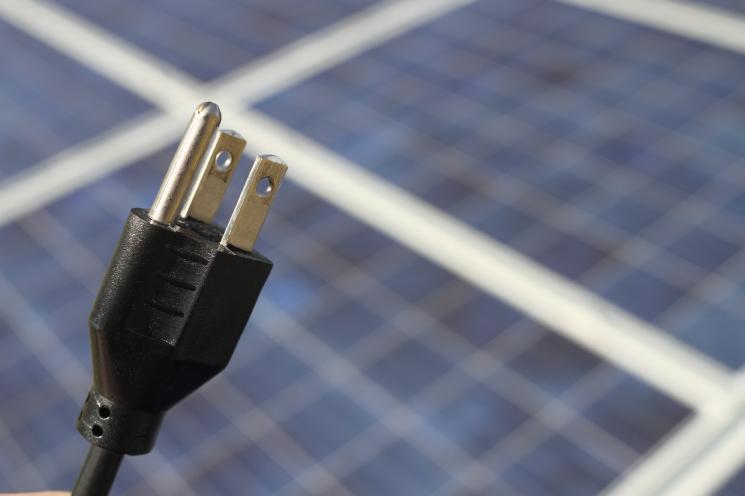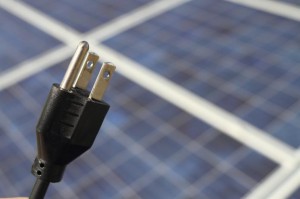
The Biggest Challenge to American Solar Manufacturing
 As ASP Policy Analyst Nick Cunningham pointed out earlier this week, the solar industry is booming, with panel installations up 85% in Q1 2012 from Q1 2011. Unfortunately, the surge in installations is not translating into strong profits for domestic manufacturers. A trade war between Chinese and American solar manufacturers is causing instability for producers.
As ASP Policy Analyst Nick Cunningham pointed out earlier this week, the solar industry is booming, with panel installations up 85% in Q1 2012 from Q1 2011. Unfortunately, the surge in installations is not translating into strong profits for domestic manufacturers. A trade war between Chinese and American solar manufacturers is causing instability for producers.
Chinese competitors have been accused of selling modules below production costs. In selling modules at what American producers claim are unreasonably low prices, Chinese manufacturers are unfairly reducing the ability for American manufacturers to compete.
They claim “dumping” of cheap Chinese modules onto the American market is causing American manufacturers to go under. Domestic producers say they are unable to contend with what they call excessively inexpensive competitors, despite an overall “steep decline” in production costs in recent years.
The Washington Times recently reported on the House subcommittee hearing for Abound, noting that it “seemed at times a re-airing” of Solyndra’s hearing almost a year ago. The reason for their likeness was attributed to one factor: “China subsidies were key to collapse” in both instances.
Chinese government subsidies exacerbate Chinese producers’ competitive advantage of cheap labor costs. Reactionary measures by the U.S. government to reduce this deficit have proven largely ineffective.
The U.S. has tried to stem the tide of dumping by placing a 31% tariff on Chinese imports in May. As Reuters pointed out last week, it is likely Chinese producers will continue to see short-term manufacturing cost increases as they look to circumvent American tariffing by obtaining supplies from overseas. But such a short-term rise in production costs will merely be a blip as they continue their downward “slide.”
Tariffing has proven unsuccessful and has also placed added pressure on small local manufacturers such as Small Steps Solar, causing job losses. One month after the introduction of the tariff Chinese modules saw a 76% increase in U.S. sales, highlighting the tariff’s futility. Since then we have also seen another high-profile bankruptcy occur with Abound Solar.
And the problem isn’t just confined to the U.S. either.
The dumping contagion has also been cause for concern in Germany, with Germany’s environment ministry considering launching anti-dumping proceedings against China.
Even in China, manipulation of the market is hurting manufacturers associated with solar.
China’s polysilicon industry – instrumental in manufacturing solar modules – is being bludgeoned by China’s economic myopia. Because of overproduction, China is being forced to import half of its polysilicon. 80% of polysilicon manufacturers in China are closing operations due to an unsustainable system according to greentechmedia.com.
When China’s first-ever polysilicon production line closed earlier this year, it cost 200,000-300,000 yuan (approximately $31,500-$47,000) per ton to produce the substance. During that time, polysilicon was selling for roughly 200,000 yuan ($31,500) per ton. This situation was never going to be a long-term strategy for the Chinese.
What should the American public learn from this situation?
The solar manufacturing dispute between the U.S. and China is “part of a broader trade conflict extending far beyond the polysilicon and solar industries” according to Dow Corning, majority owner of Hemlock Semiconductor Group. This conflict is proving harmful to both parties.
Tariffs attempting to prevent an influx of Chinese cells are futile, harmful, and need to be removed. But unless China begins selling modules at prices that reflect production costs, American competitors will continue to suffer.
The biggest strain on American producers is not “crony capitalism,” but an excess of subsidized Chinese modules available at uncompetitive prices.






[…] had numerous complaints, variously accusing the other of unfair trade practices, as covered by ASP in the past. One of the most contentious issues has been over solar technology. The U.S. has accused Chinese […]